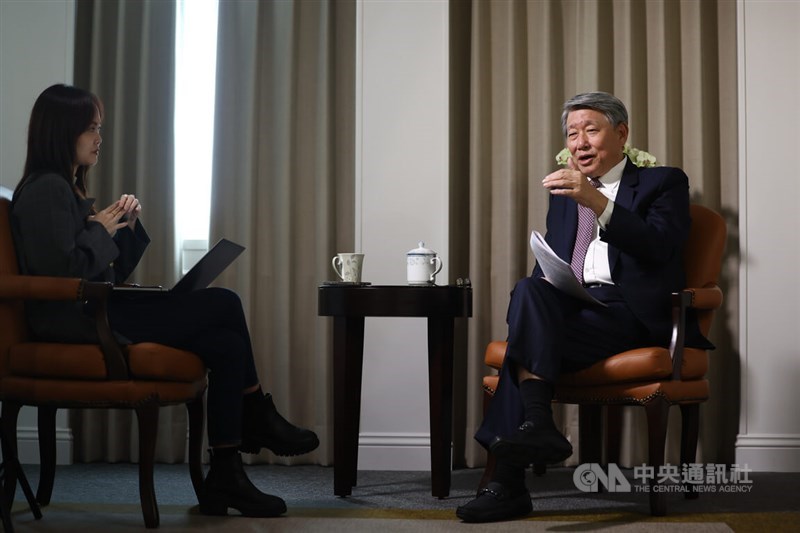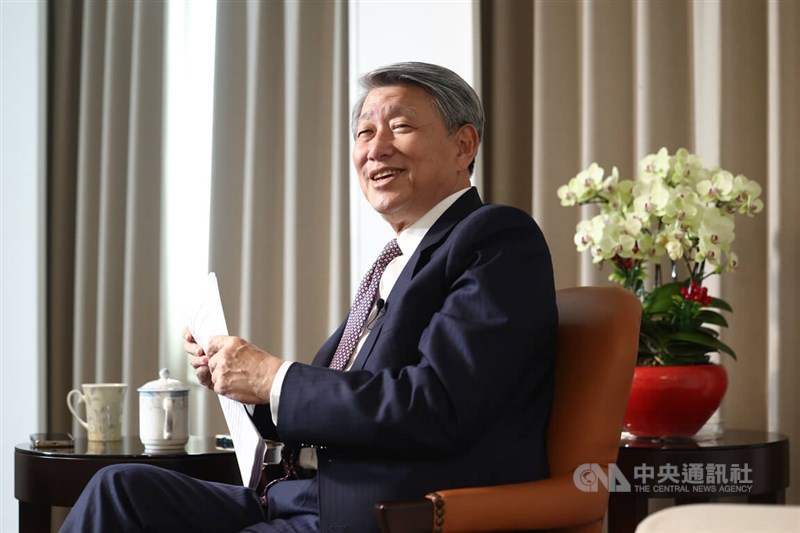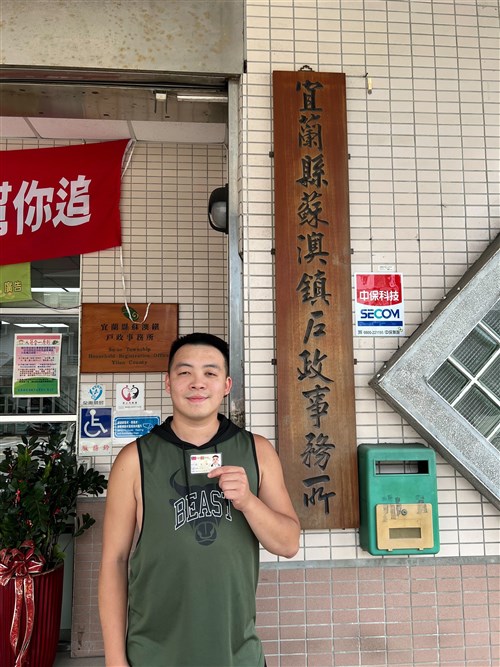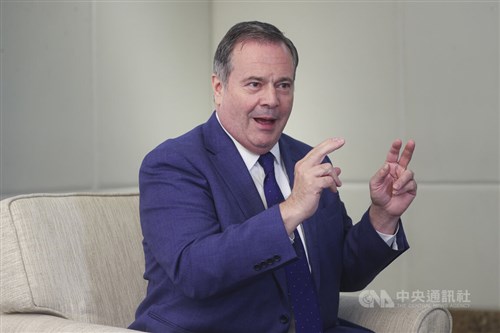INTERVIEW/Taiwanese industry undaunted by U.S. tariffs: Economics minister

Taipei, May 18 (CNA) Taiwanese manufacturers are "not afraid" of U.S. tariffs, but are concerned about being affected more heavily than regional economic competitors Japan and South Korea, Minister of Economic Affairs Kuo Jyh-huei (郭智輝) told CNA.
"Taiwan has many advantages that other countries do not have, the most notable of which is its semiconductor industry ecosystem," Kuo said.
In an interview ahead of his one-year anniversary in office on Tuesday, Kuo emphasized that the United States "must rely on Taiwan" to boost its microchip manufacturing capacities.
Taiwan has submitted a position paper under Section 232 of the U.S. Trade Expansion Act to explain the "complementary relationship" between Taiwan and the U.S. in terms of trade and technology, Kuo said.
That came in response to an announcement by U.S. President Donald Trump on April 2 that Washington would impose "reciprocal" tariffs on global trading partners.
Under that policy, later paused for 90 days, import duties of 32 percent, 25 percent, and 24 percent were to be imposed on goods from Taiwan, South Korea and Japan, respectively, putting Taiwan at a disadvantage.
Kuo said one of the purposes of Trump's policy is to encourage companies to manufacture their products in the U.S., noting that tech heavyweights Taiwan Semiconductor Manufacturing Co. (TSMC) and Intel already have operations there, while Samsung lacks advanced semiconductor production capacity.
Samsung does have a semiconductor fab in Austin, Texas that produces more mature nodes, up to the 14 nanometer process, and it is building a more advanced fab in Taylor, Texas northeast of Austin currently set to begin production in 2026.
Kuo expected, however, that "once tariffs are imposed, Samsung will be most disadvantaged."

He also argued that because competitiveness today depends on cash and capabilities, TSMC will maintain a dominant position "over the next 10 years."
At the same time, because TSMC is a foundry, any tariff increase would primarily impact American customers, not the Taiwanese company itself, Kuo said.
Apple iPhones sold in the U.S. could become more expensive than those sold abroad, which is "definitely not something the American people would like to see," Kuo suggested.
Kuo said Taiwan will wait to see the results of negotiations with Japan and Korea before proceeding, while also continuing detailed talks with the U.S., where concerns over "origin-washing" have been a key focus.
He said Taiwan and the U.S. currently use different standards for labeling goods as "Made in Taiwan" or "Made in China," but added that his ministry is strictly enforcing rules -- with penalties of up to NT$3 million and potential revocation of licenses for repeat violations.
To prevent illegal transshipments, the Ministry of Economic Affairs has adopted a four-part strategy of monitoring import volumes, imposing stricter penalties, strengthening anti-dumping investigations, and increasing guidance for industry, Kuo said.
![Protester to soldier: Hongkonger finds road to Taiwan citizenship bumpy]() Protester to soldier: Hongkonger finds road to Taiwan citizenship bumpyIvan Choi (蔡智豪) was forced into exile after playing an active role on the front lines of Hong Kong's 2019 mass protests.08/22/2025 04:27 PM
Protester to soldier: Hongkonger finds road to Taiwan citizenship bumpyIvan Choi (蔡智豪) was forced into exile after playing an active role on the front lines of Hong Kong's 2019 mass protests.08/22/2025 04:27 PM![Taiwanese American puts groovy spins on classic Hokkien songs]() Taiwanese American puts groovy spins on classic Hokkien songsTo Shinyi Lee (李欣怡), Hokkien Taiwanese music needed an overhaul. Seeing the genre as dominated by "khàu-tiāu-á" (哭調仔, "crying songs") and lacking grooves, she set out to change it by putting her own spin on traditional Taiwanese songs.08/18/2025 07:47 PM
Taiwanese American puts groovy spins on classic Hokkien songsTo Shinyi Lee (李欣怡), Hokkien Taiwanese music needed an overhaul. Seeing the genre as dominated by "khàu-tiāu-á" (哭調仔, "crying songs") and lacking grooves, she set out to change it by putting her own spin on traditional Taiwanese songs.08/18/2025 07:47 PM![Taiwan should spend more on defense: Ex-Canada defense head]() Taiwan should spend more on defense: Ex-Canada defense headA former Canadian defense chief has advised Taiwan to raise its defense spending in the face of growing military threats from China to show it is determined to defend itself instead of solely relying on the United States' support.08/06/2025 11:31 AM
Taiwan should spend more on defense: Ex-Canada defense headA former Canadian defense chief has advised Taiwan to raise its defense spending in the face of growing military threats from China to show it is determined to defend itself instead of solely relying on the United States' support.08/06/2025 11:31 AM
- Cross-Strait
Taiwan warns 23 entertainers for 'cooperation' with Chinese authorities
08/29/2025 10:56 PM - Politics
Amended cyber security law tightens supervision, raises breach fines
08/29/2025 09:30 PM - Society
Taiwan eases rules to attract more foreign talent
08/29/2025 09:16 PM - Society
1-2 typhoons expected to form near Taiwan in fall: CWA
08/29/2025 09:02 PM - Politics
Visiting U.S. senators caution against China-led 'axis of aggression'
08/29/2025 08:17 PM


